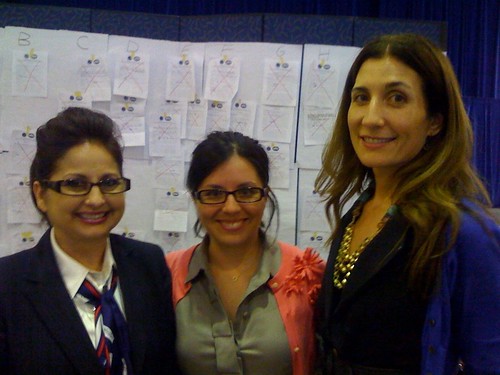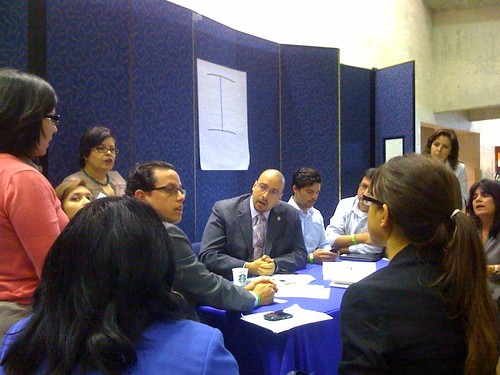Last week, community leaders from all over the country visited Washington DC to join the White House for the first Hispanic Policy conference in our nation’s history. The goal was to get a dialogue going between administration officials and community leaders on an array of topics of particular interest to the Hispanic community. Some of the topics included jobs, education, immigration and energy. I had the honor of attending the conference on behalf of USDA.
The two-day event was coordinated and hosted by the White House Office of Public Engagement and the White House Initiative on Educational Excellence for Hispanics. 160 Hispanic leaders from 25 states, the District of Columbia, and Puerto Rico attended the discussion as well as over 100 administration officials.

The dialogue centered on the President's agenda and its impact on the Hispanic community with particular emphasis on strategy and solutions. Speaking of the President’s agenda, President Obama himself dropped in for the conference and was enthusiastically received by the guests. His visit was a welcome surprise and a testament to his commitment to improving conditions in the Hispanic community.
Another highlight of the conference was when I joined the White House Domestic Policy Council for a Social Safety Net Panel. During the panel, we discussed how programs like the Health and Human Service Department’s Temporary Assistance for Needy Families and USDA programs like the Supplemental Nutrition Assistance Program or SNAP, formerly known as Food Stamps, serve as part of our nation’s critical safety net.
Currently, over 44 million participate in SNAP monthly making it the country’s largest anti-hunger program. SNAP’s size also makes it well-positioned to help tackle the hunger and obesity paradox, another topic we discussed during the panel’s question and answer session. Hunger and obesity are dual sides of the same coin—both are fueled by lack of proper nutrition. USDA is committed to using its programs to not only ensure that hungry people eat, but that they have the tools to purchase and prepare nutritious foods that help them stay healthy and active. I was glad to have an opportunity to share that message with the conference attendees.

Having been a part of the Food and Nutrition Service’s leadership for more than two years, I can attest to all the great things USDA and this entire administration have accomplished when it comes to helping children and families fight hunger. However, government alone is not the answer. More than ever, we all have to work together—from the neighborhood folks to those who serve in the Nation’s capital—so that we can collaborate, act, and make good on our commitments. I am happy to report that the inaugural White House Hispanic Policy Conference was, without a doubt, a solid step in that direction.
